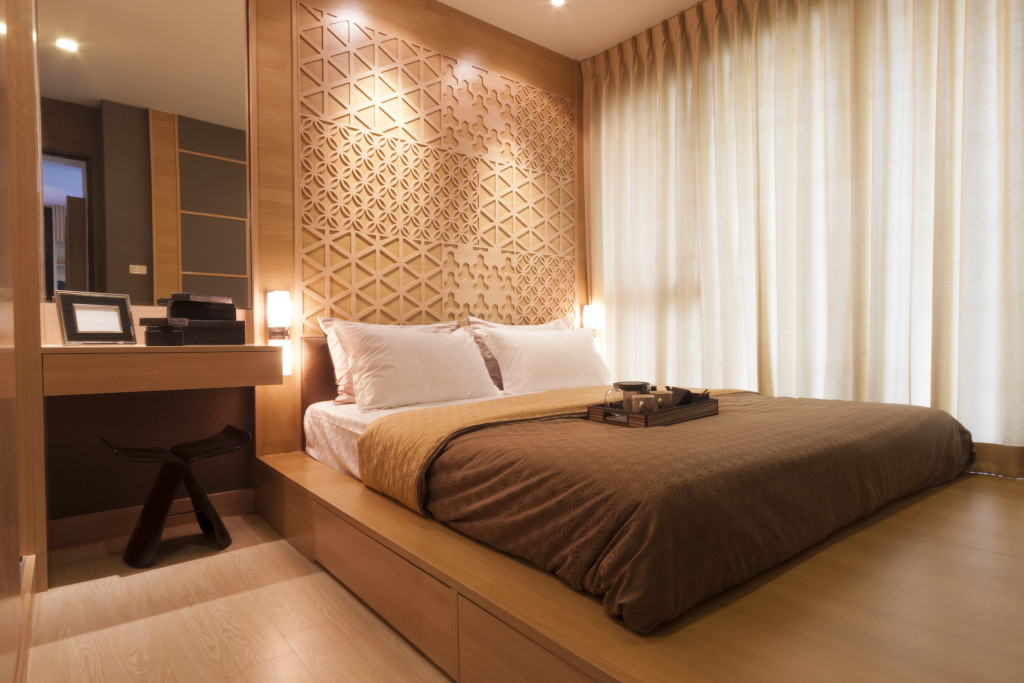- A keyless entry system allows guests to use their own devices as keys.
- Advanced surveillance cameras have motion sensors, night vision, and facial recognition for 24/7 monitoring.
- On-site security personnel patrol the area to monitor potential threats and activities.
- Fire and carbon monoxide detectors trigger an alarm in case of a fire or gas leak, alerting hotel guests and staff to evacuate.
- Automated check-in services eliminate queues at the reception desk and provide quick access to rooms.
When people travel, safety is always a top concern. You want to feel secure and protected in your home away from home. As a traveler, you may be interested to know that hotels are constantly implementing new technologies to ensure guest safety. From keyless entry systems to advanced surveillance cameras, hotels are putting all effort into ensuring guests have a worry-free stay.
This blog post will explore the steps hotels take to keep you safe during your stay.
1. Keyless entry system
The keyless entry system is one of the most significant changes in hotel technology. This allows guests to use their smartphones as room keys, which means no more lost or stolen keys. This system also ensures that only guests can enter their rooms, avoiding unauthorized access. With the room key on your mobile phone, you can also bypass the check-in line and go straight to your room.
Some systems even allow guests to set up their own entry code, adding another security layer. You can set up a PIN code that only you can access. This way, even if someone steals your phone, they won’t be able to access your room.

2. High-tech surveillance cameras
Surveillance cameras are no longer just for the hotel lobby area. Hotels now install advanced surveillance cameras in guest rooms and hallways, providing 24/7 monitoring and remote access to hotel staff. Some cameras also have motion sensors, facial recognition, and even night vision. Using these cameras means hotel staff can quickly identify and respond to potential security issues, keeping guests safe and secure.
To further ensure the efficiency of these surveillance cameras, hotels also work with security video monitoring service providers that can monitor the footage in real-time. This allows hotel staff to be alerted of any suspicious activity and take action immediately. Using these services, security specialists can monitor the footage from any location, giving them complete control over the security of their guests.
3. On-site security personnel
Hotels also invest in on-site security personnel trained to monitor potential threats and activities. These security personnel are trained to identify suspicious behaviors and respond appropriately. They patrol hotel premises regularly, ensuring that the hotel remains safe. Many hotels also employ armed guards, providing another layer of protection.
4. Fire and carbon monoxide detectors
Fire and carbon monoxide detectors are essential safety features in any hotel. With the advancement of technology, these detectors are now smarter than ever. They come equipped with sensors that detect smoke, heat, and even carbon monoxide. In case of a fire or gas leak, the detectors trigger an alarm and pinpoint the location of the hazard, alerting hotel guests and staff to evacuate the area immediately.

5. Automated check-ins
Hotel operations have also gone digital, with many hotels now offering automated check-in services. This new technology allows guests to check in and out independently. This system offers various benefits, including:
a. Eliminating queues at the reception desk
The longer the line, the more vulnerable it is to potential security threats. Automated check-in services eliminate the need to stand in a line, thus making it easier for guests to enter and exit the hotel safely.
b. Quick access to the hotel
With automated check-in services, guests can quickly enter their rooms and start enjoying their stay. This helps reduce potential risks as guests can quickly enter and exit the hotel without waiting for an attendant.
c. Easy access to room keys
Guests no longer need to carry room keys or worry about losing them. Automated check-in systems allow guests to access their rooms with a unique code, which can be easily reset if needed.
d. Improved customer experience
By eliminating queues and providing quick access to rooms, automated check-in services improve the overall customer experience. Hotel staff can also use this technology to provide more personalized and efficient service. They can focus on providing essential guest services rather than attending to check-in and check-out formalities.
Hotels invest heavily in advanced technology to ensure guests have a safe and secure stay. With the right safety measures, travelers can enjoy a worry-free stay, knowing their safety is considered. By implementing keyless entry systems, advanced surveillance cameras, on-site security personnel, fire and carbon monoxide detectors, and automated check-ins, hotels are doing their part to ensure guests have the best experience possible. So, next time you travel, rest assured, knowing that your safety is in good hands.





